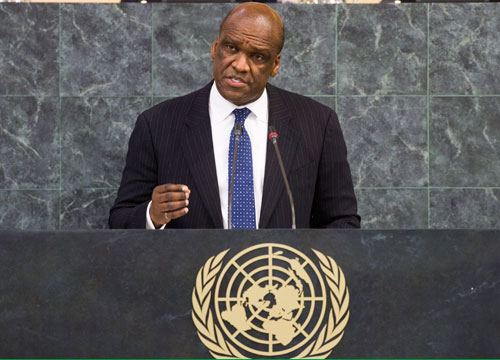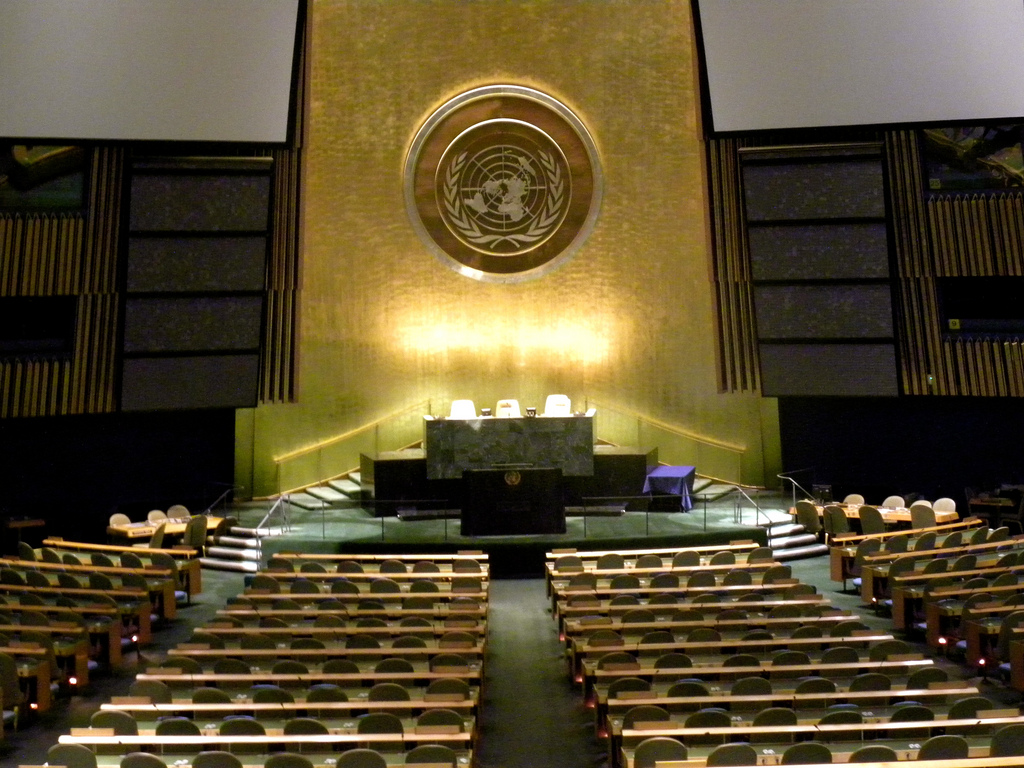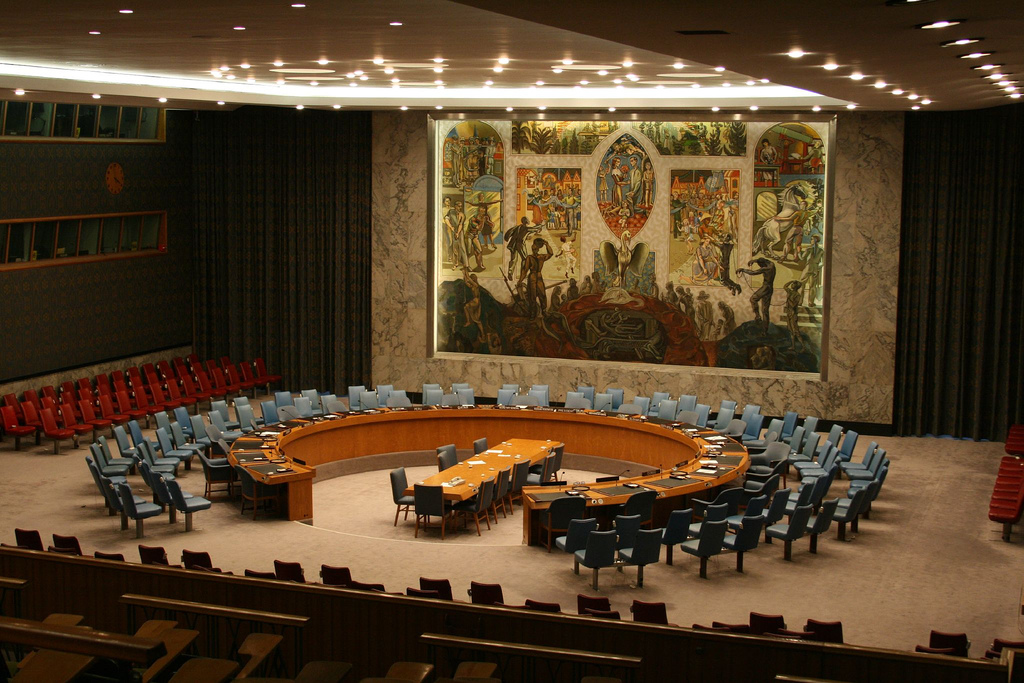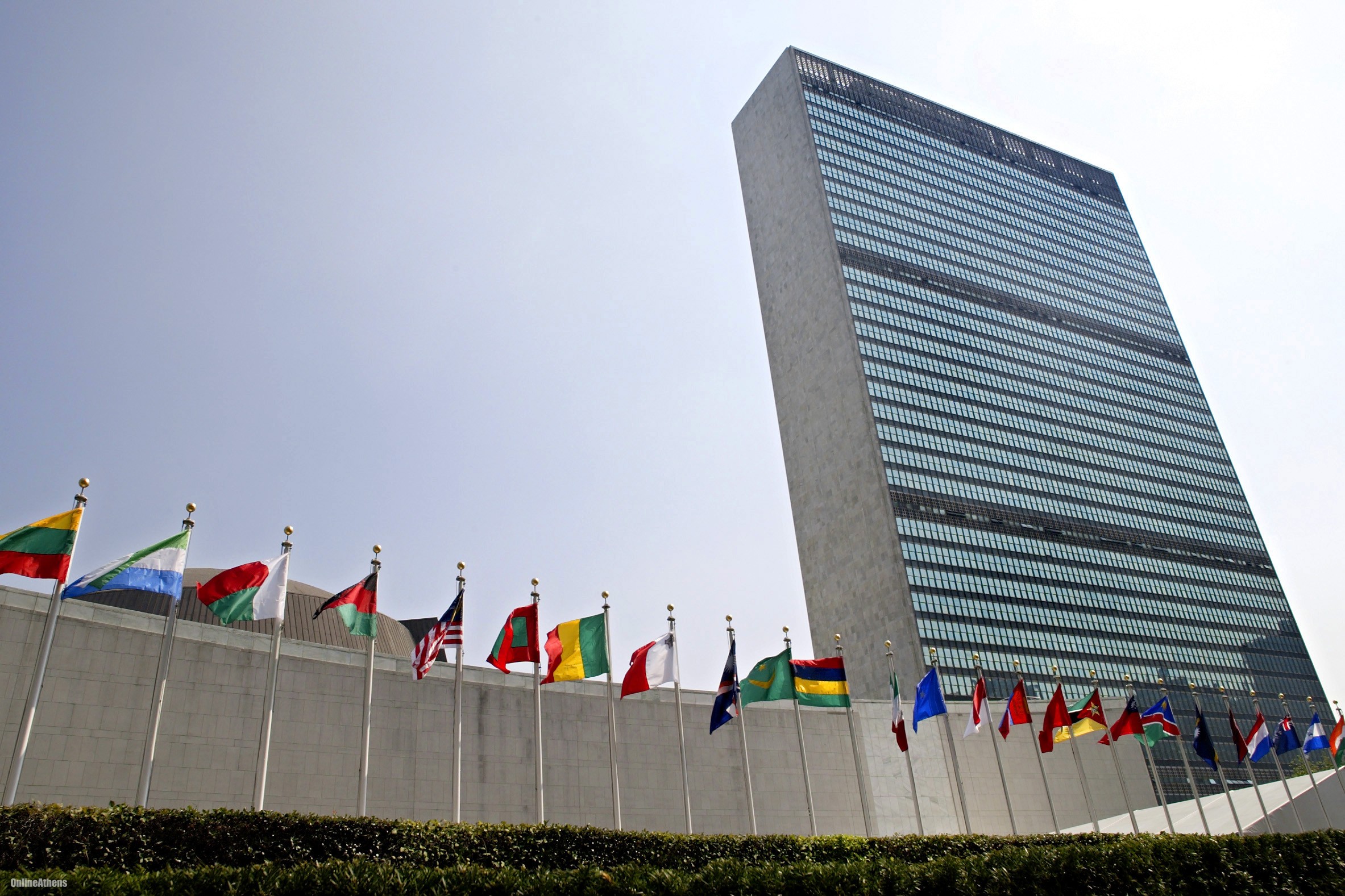Sorry to disappoint, but the UN is neither. Not a beast, not a dream utopia.
Too often in the news the UN is reported as if it acts autonomously, as if it is solely responsible for waging war, building peace, providing emergency aid or development. It is involved in doing all this but it does so only at the behest and command of member nations – never on its own.

A UN military mission cannot exist without full approval from the UN Security Council made up of representatives from member countries. The mission itself is made up of soldiers on loan from member countries. Every delegate sitting around the Council table is an ambassador from his own country and is casting a vote on behalf of his own government. The UN hasn’t got an army.
The only people who actually work independently for the United Nations are those in the so-called “secretariat”, not necessarily secretaries (though many are) but a bunch of experts whose main task is to organize UN meetings in New York and other places where the UN is present, Geneva, Vienna, Paris, Rome etc. As UN staff, they do not cast a vote; they “serve” member nations. They prepare meetings, do research, bring the arguments to the table and pull together all known information in the form of documents so that (hopefully) enlightened decisions can be taken.
So exactly who is in the “UN Secretariat”? A bunch of glorified secretaries? Not quite.
A Complex, Pyramidal System…
 44 thousand people. And this figure does not include the World Bank, generally considered part of the UN family or those involved in military operations.
44 thousand people. And this figure does not include the World Bank, generally considered part of the UN family or those involved in military operations.
Second, the UN staff: organized in a pyramidal bureaucracy, it is a two-tier system, with on one side, the General Service, i.e. secretaries, drivers, interpreters etc. and on the other, Professionals with proven expertise – topped by high management. The UN Secretariat in New York where the General Assembly is held and where the UN Security Council meets is headed by the Secretary General; other UN agencies and programmes may be headed by a Director-General or even a High Representative, the case for UNHCR (High Commissioner for Refugees). In all cases, the hierarchy is strictly set and inflexible.
Does the UN Secretariat matter politically on the world scene or is it just a giant, helpless bureaucracy?
The “Soft Power” of UN Resolutions
Actually, and this is what few in the media understand, the Secretariat has some leeway – a tiny wedge that UN staff uses to push what it sees as the real UN agenda. Because UN staff is often idealistic and would like to see a better world emerge, more just and peaceful. And that wedge is called “resolutions”.
A resolution is a piece of paper that sums up a political position or a decision resulting from many rounds of discussions in international meetings and that member nations are called upon to vote for.
 The voting is public, those who disagree go down on record, but the general thrust is to go for “unanimity“: that is the more desirable, “politically correct” and widely accepted behavior. Often, a country that disagrees finds itself in a diplomatically isolated position and is looked upon with disapproval by the others.
The voting is public, those who disagree go down on record, but the general thrust is to go for “unanimity“: that is the more desirable, “politically correct” and widely accepted behavior. Often, a country that disagrees finds itself in a diplomatically isolated position and is looked upon with disapproval by the others.
The desire to achieve “unanimity” has proved to be a formidable force. Over time, and the United Nations has now existed for over 60 years, UN resolutions, big and small, have piled upon resolutions, slowly building up a body of international law, rules and regulations in all sorts of social, scientific and economic areas, from the right to “basic needs” such as food, shelter and water to specifics like pesticide control and broader issues, like sea and space rights.
It’s a slow moving feast but it is inexorably pushing the world towards a tighter international community. Diplomacy that was historically the province of national governments has now moved to the halls of the United Nations. Diplomatic maneuvering at the UN is by far the more challenging branch of modern diplomacy.










